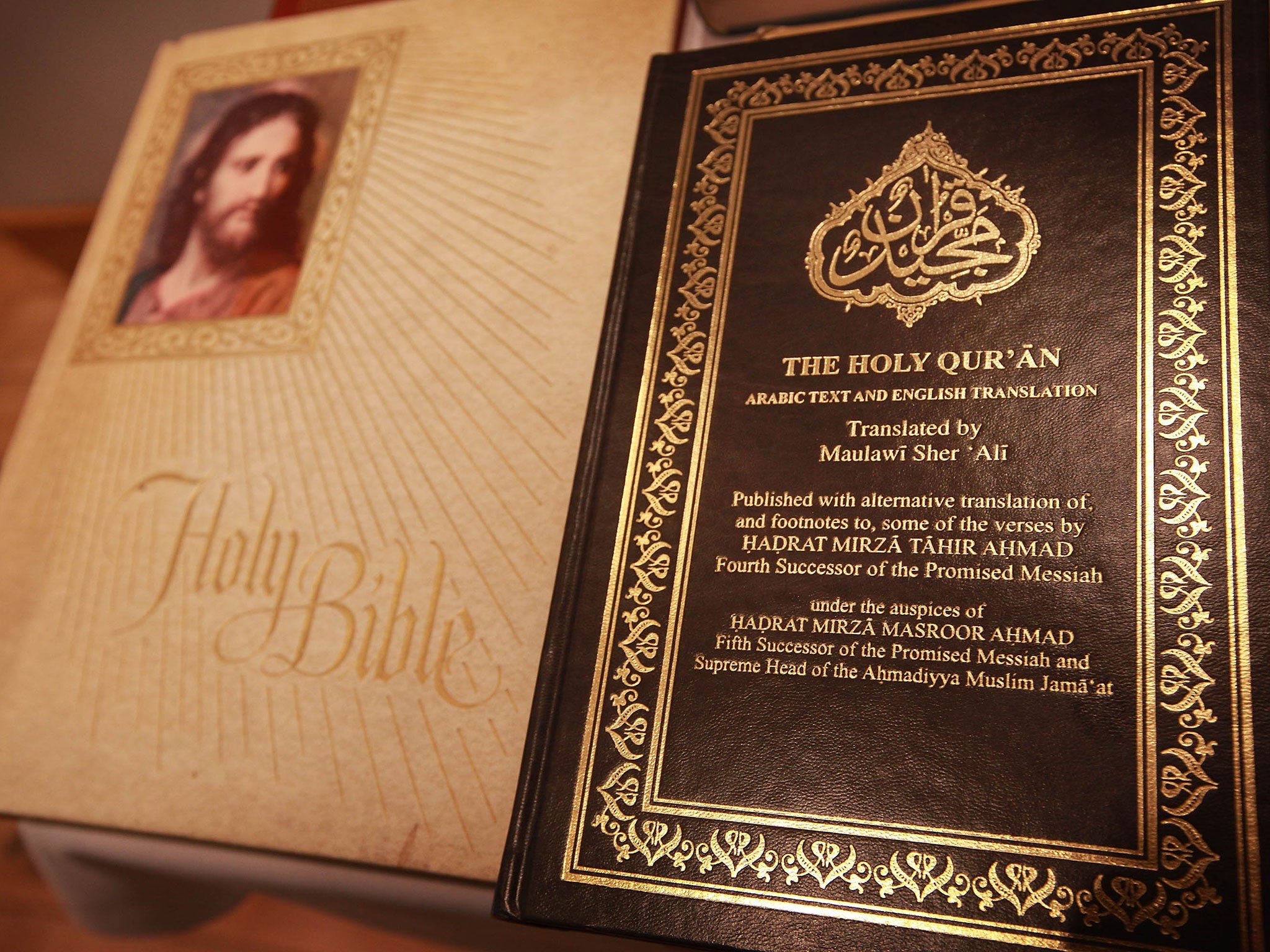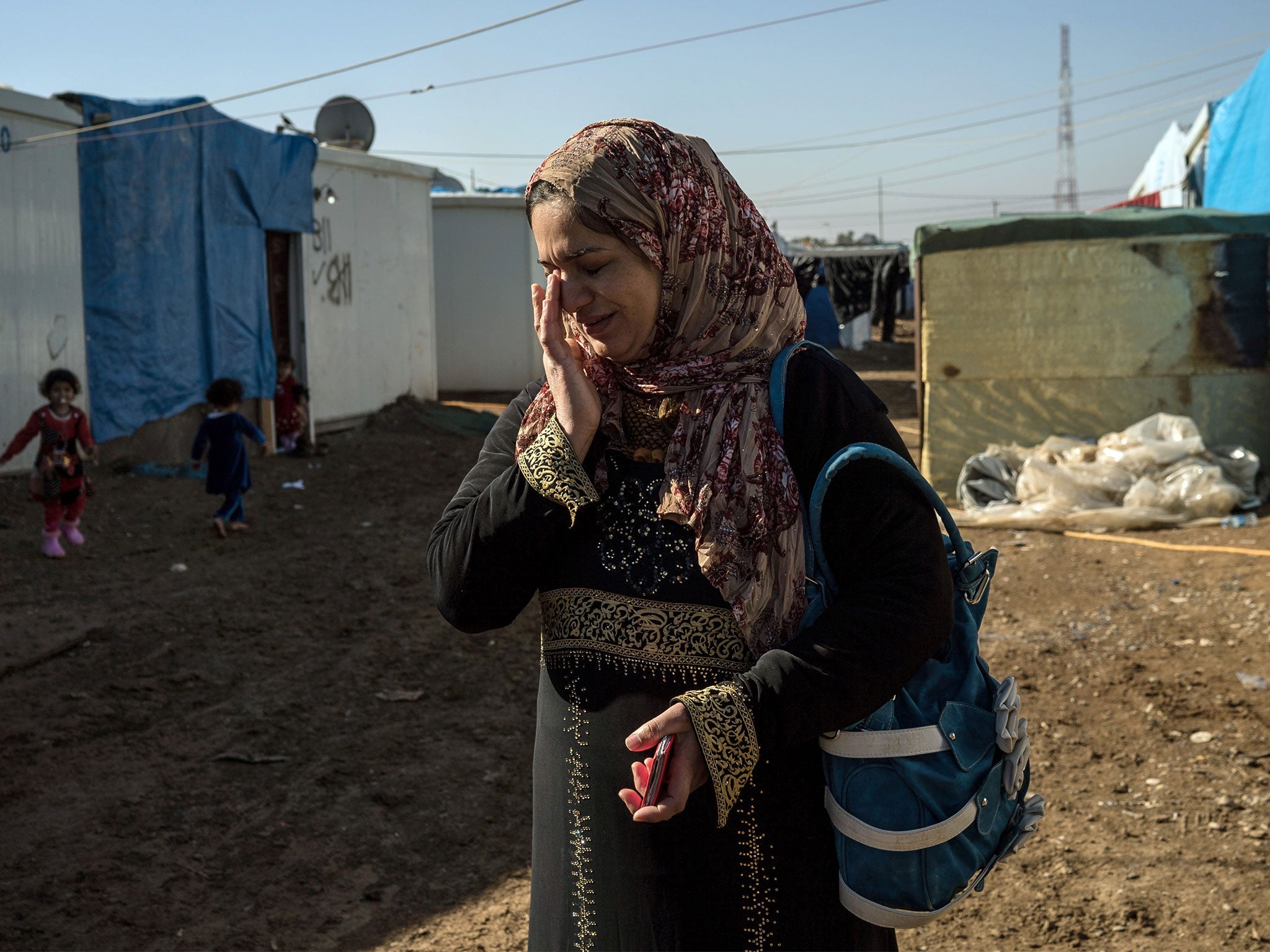Quran does not cause terrorism and is no more violent than the Bible, expert says
Anti-Islam groups have been criticised for claiming the Muslim holy book incites terrorism

Your support helps us to tell the story
From reproductive rights to climate change to Big Tech, The Independent is on the ground when the story is developing. Whether it's investigating the financials of Elon Musk's pro-Trump PAC or producing our latest documentary, 'The A Word', which shines a light on the American women fighting for reproductive rights, we know how important it is to parse out the facts from the messaging.
At such a critical moment in US history, we need reporters on the ground. Your donation allows us to keep sending journalists to speak to both sides of the story.
The Independent is trusted by Americans across the entire political spectrum. And unlike many other quality news outlets, we choose not to lock Americans out of our reporting and analysis with paywalls. We believe quality journalism should be available to everyone, paid for by those who can afford it.
Your support makes all the difference.“The source of the problem is the Quran itself…anyone who reads it either leaves it or becomes a terrorist.”
That claim, made on a Facebook page supporting Pegida, is one of countless similar allegations being circulated on the internet by anti-Islam and far-right groups.
But is the Quran actually any more violent than the Bible or Torah? Not according to Dr Ed Kessler, the founding director of the Woolf Institute of interfaith relations.
“It’s not the text itself that generates violence, there is Jewish and Christian scripture you can read into to find the same,” he told the Independent.
“You read the texts through interpretation.”
Dr Kessler, who was made an MBE in 2011 for services to interfaith relations, cited Psalm 137, which appears both in the Old Testament and Tanakh.
The well-known verse expresses the sorry of Jewish people living in exile after the Babylonian conquest of Jerusalem and ends with a violent revenge fantasy, telling the conquerors: “Happy is the one who seizes your infants and dashes them against the rocks.”
Such gory excerpts can be found throughout the Bible and Quran, with one count putting the total of “cruel or violent passages” at 842 in the much longer Bible and 333 in the Quran.
Dr Kessler said that all three of the Abrahamic religions share similar stories and must be read through the lens of modern interpretation.
“There are violent extracts in the Quran as there are in the Old Testament and New Testament,” he added.
“It’s not the texts themselves that are the problem, it’s how you read them and interpret them.”
Isis and other Salafist groups base much of their propaganda on the idea of a “true” Islam based directly on a literal reading of the Quran and religious teachings, while the Bible has undergone at least a century of critical study that has largely dismissed or reinterpreted passages urging stoning, infanticide, massacres and burning.
“We tend to overlook those bits because we don’t like them, or interpret them to be more acceptable and relevant to the modern day,” Dr Kessler said.
“Interpretation can be used for good or evil, or fundamentalism or liberalism.”

He said that a key change in the last 15 years had also been the rise of Islam within identity politics that has not been mirrored by Christianity.
The Cambridge fellow said that many British Muslim groups were seeking to tackle fundamentalist interpretations of the Quran and highlighted the diversity of thought within the many denominations of Islam.
As fundamentalists use the texts to justify their aims, so do anti-Islam groups like Britain First and Pegida, who frequently use Crusade-inspired imagery while claiming to fight the supposed “Islamification” of Europe.
Writing for the Independent, Mariam Hakim took such groups to task by analysing Quran passages frequently cited to claim the text permits sexual slavery and rape.
“Religious illiteracy is a root cause of extremism,” she wrote, accusing both Islamophobic activists and terrorist groups of “pushing their own agendas”.
“Passages do have a life of their own, however much we reinterpret them,” Dr Kessler cautioned.
“The Christian Bible shares an intrinsic problem that is common to the Tanakh and the Quran, namely that polemic against a named other carries a weight and authority throughout history.
“Moreover, they are constantly available for use or abuse, to justify the most appalling actions in the name of God.”
Join our commenting forum
Join thought-provoking conversations, follow other Independent readers and see their replies
Comments